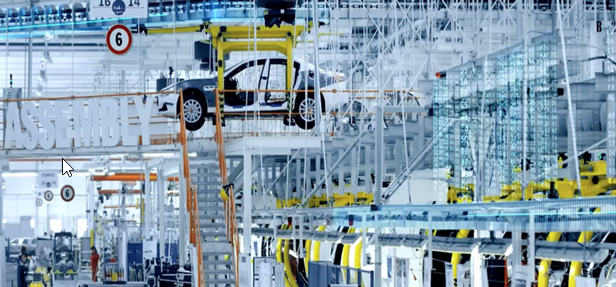Industry 4.0 for process in Africa
Expert Bloggers
Sylodium provides the opportunity to participate and manage all news on about Industry 4.0.
You will be given the authority to manage while earning along the way. Contact us here: mayado@sylodium.com
Participating Companies
Conduct business in all form of bilateral trades. Sylodium identifies multiple trends that are potentially profitable and we already have a steady view for businesses from:
America to Africa – trending on Future: Industry 4.0, 3D Printers, Laser, AI, Virtual Intelligence, R&D businesses, etc.
International Institutions
Synergies
All futuristic trends can also be visualized with our America-Africa relations. This development allows introduction of businesses to an industrious future. Sylodium will enhance necessary support based on our client’s expectation to be able to clinch proposed deals.
This new from ISA.org
Industry 4.0 for process
Process Sensor 4.0 Roadmap
The Process Sensor 4.0 Roadmap highlights the opportunity to optimize process control and value-added production with "smart," networked communicating sensors. These "smart" sensors provide services within a network and use information from the network as a foundation with which to implement Industry 4.0 cyber-physical systems within future process industry automation systems. Fundamental Industry 4.0 for Process concepts include process applications with direct communications from field devices simultaneously to process control, business systems, supply chain, engineering, and planning systems. These sensors are implemented by leveraging embedded computing technology, which has become pervasive in consumer and computing products. This is intended to facilitate the change from rigid, preconceived, hierarchical production systems to dynamic, flexible, self-configuring and self-optimizing, integrated, and intelligent networked systems and processes.

The road map was initiated by NAMUR and VDI/VDE in collaboration with several prominent leaders in the industry, including ABB, BASF, Bayer Technology Services, Bilfinger Maintenance, Endress+Hauser, Evonik, Festo, Krohne, Lanxess, Siemens, and Fraunhofer ICT.
NAMUR is an international association of user companies established in 1949. It represents their interests concerning automation technology. Organizational goals include adding value through automation engineering and facilitating "frank and fair dialogue" with manufacturers.
VDE Association for Electrical, Electronic and Information Technologies is one of Europe's largest technical-scientific associations, with more than 36,000 members. The organization has primary offices in Frankfurt, Berlin, and Brussels, as well as 29 branch offices throughout Germany. VDE also works closely with the Institute of Electrical and Electronics Engineers (https://www.ieee.org).
VDI/VDE Society for Measurement and Automatic Control (GMA) is a joint organization of VDE and VDI, which orients users about the current trends in automation that are supported by innovations in information technology (IT), microelectronics, optics, and sensorics (advanced measuring technologies). The Society organizes meetings, conferences, seminars, and other events to promote the transfer of know-how.
The Process Sensors 4.0 Roadmap goes beyond previous road maps, which tended to focus almost exclusively on technical requirements of sensors and their operating principles. Instead, the new road map focuses on how to achieve greater efficiencies with sensors that have embedded intelligence, communications, and an information system interface based on Industry 4.0 concepts. The road map describes how communication and the management of information will become increasingly important as information from sensors is integrated into business systems. The road map notes new technology will simplify application engineering and maintenance using "plug and play" smart sensors. The report shares how new developments, from IT and medical technology, are creating the possibility for improved process sensors, leveraging miniaturized components with extremely low pricing. These devices also utilize advances in configuration software to simplify project engineering and maintenance. For example, new smart sensors may be able to measure several metrics, calibrate and optimize themselves, and interact directly with other sensors and actuators, thus performing control and automation independently.

The road map identifies the necessary requirements, as well as the communication abilities, of smart process sensors from simple temperature sensors to more complex ones. Important smart sensor features noted in the road map include:
- autonomous sensor interaction (peer to peer)
- sensor verification (logical verification using adjacent sensors)
- plug and play (self-configuration/parameterization)
- virtual description supporting continuous engineering
- traceability and compliance
- self-calibration
- self-diagnosis
- connectivity and communication using a unified protocol (OPC UA)
- maintenance and operating functions
- energy self-sufficiency (energy harvesting)
- wireless sensors
- sensor data access rights control
- standards compatible (i.e., good manufacturing practices, U.S. Federal Drug Administration)
The application of Industry 4.0 and Internet of Things concepts and technologies is part of an ongoing discussion with ramifications throughout the entire industry. Smart sensors with embedded intelligence that can communicate for control and integrate with enterprise business systems represent a clear system architecture change for process automation and control leveraging advances in technology.

